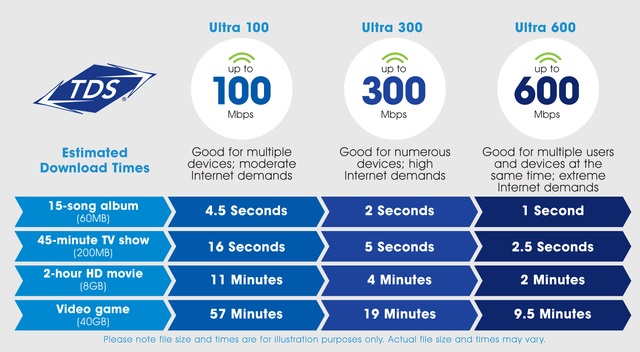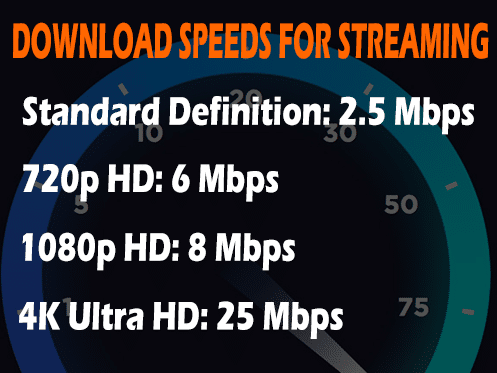

For instance, if you live on your own and like to tweet about your favorite show on your phone while you stream it in 4K on your TV, you'd want at least 35Mbps for smooth playback and another 10Mbps to keep up on Twitter. If it's applicable, think of the times you've streamed Netflix or taken a video call from Mom, then imagine everything else that could have been happening on your network at the same time and use the chart above as a rough guide.

Video is often the biggest bandwidth hog, so aim for an internet plan that can accommodate your viewing habits. If you're using these devices consistently, then you'll want to ensure your internet speed has the bandwidth to cover them all. Your household may only consist of one or two people, but it could be hosting 10 to 15 devices (laptops, cellphones, gaming consoles, smart TVs, smart home gadgets, you name it). How many people or devices are using your network?Īnother important factor to consider in your search for the ideal internet speed is how many users and devices are on your network in a given day. If you work from home, stream lots of high-resolution videos or regularly play games online, you'll likely need more internet speed than someone who casually goes on social media platforms and gets their TV from a cable provider.ĭifferent activities require different internet capabilities - here's a small chart to help give you an idea: Internet speed recommendations However, that isn't the case for everyone, which you'll want to keep in mind as you're shopping for an internet plan. These days, with so many people working from home, a lot of us are using more internet than we're used to. To find out whether your internet speed is truly to blame, check out our guide on how to test your connection. Network congestion, poor router placement, interference from nearby networks and other factors can all slow things down. It's also important to note that having a fast internet package doesn't guarantee fast internet. With smart home gadgets growing in prevalence and our media consumption increasingly driven by streaming, it makes sense to opt for something closer to 100Mbps if plans like those are available in your area (and, frustratingly, in a lot places they still aren't). In March, a bipartisan group of senators called on the FCC to raise the bar for broadband by setting minimum speeds at 100Mbps.Īt any rate, if you make use of the internet on an everyday basis, you'll want to aim for something a little higher than 25Mbps if you can. The Federal Communications Commission defines anything faster than 25 megabits per second as " advanced service." For most, however, this is probably closer to the bare minimum.


 0 kommentar(er)
0 kommentar(er)
